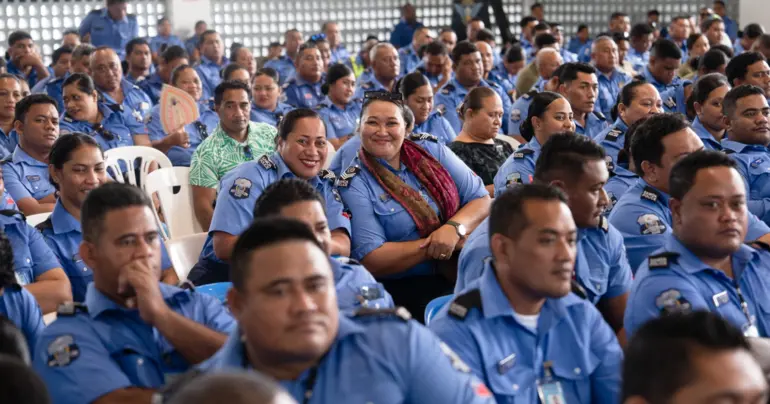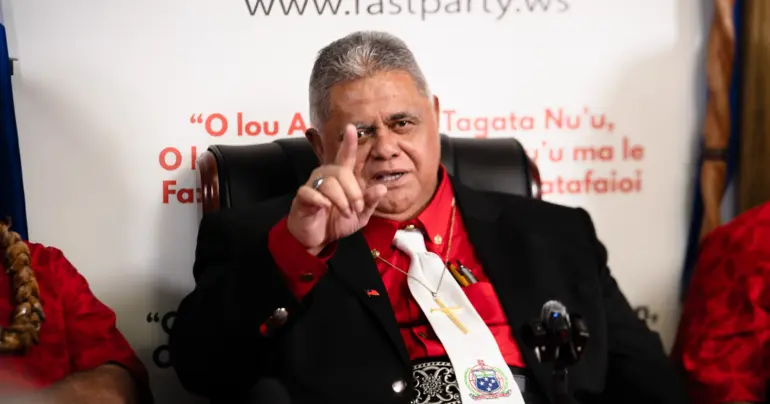World Cup exemplifies uneven global climate field: report
 By Sapeer Mayron
•
19 September 2019, 9:00PM
By Sapeer Mayron
•
19 September 2019, 9:00PM
Rugby’s biggest nations are all major coal consumers and should work harder against the climate crisis, a new report states.
Just one day before the Rugby World Cup begins, the Christian Aid charity has released report highlighting the divide between Tier 1 rugby nations and their Pacific competitors and the inaction of large coal-powered nations on climate change, the single biggest threat to the Pacific.
Some of the “main culprits” contributing to the climate crisis and concomitant rising sea levels, increased extreme weather events, drought and food insecurity will play alongside or even against the victims during the world cup, the report states.
Report author Dr Katherine Kramer, Christian Aid’s Global Climate Lead, said the World Cup provides an apt example of global injustice.

“Climate change is the ultimate injustice issue and nowhere is that captured more clearly than among the nations taking part in the Rugby World Cup,” she said.
“The main culprits for causing the climate crisis are European nations as well as major coal burners like Australia, the USA and Japan.
“Not only have they caused the current dire situation, but they are dragging their feet on making the needed transition to a zero-carbon economy.”
Two of Samoa’s pool-mates in the competition, Russia and Japan are considered to be taking “highly” or “critically” insufficient measures to cut their emissions.
The report calls out the World Cup hosts, Japan, for planning to build more coal stations and powering a third of its electricity from coal by 2030.
“The country is already being bit by climate change, having suffered a record-breaking 2018 summer heatwave in which more than 1,000 people died," the report says.
“Scientists found that this heat could not have happened without human-caused climate change."
Japan is already facing the brunt of climate change. As the first teams arrived in Tokyo last week, Typhoon Faxai hit, delaying the Australian team’s arrival and leaving England stuck in the airport.
Category 4 Faxai is one of the strongest typhoons to hit Japan in a decade. It caused more than 900,000 people to lose power, including the entire city of Kamogawa. Winds have reached 210 kilometres per hour, and three prefectures have seen evacuation warnings.
Christian Aid argues if the large rugby nations don’t act now, they could see a world of international rugby without Pacific Island players, if they don’t act to reduce their carbon emissions.
“The onslaught Fiji, Samoa and Tonga face from climate change will make life on the islands increasingly difficult," the report says.
“More and more people will consider leaving the islands altogether, while those who are left will face ever-greater challenges from extreme weather, rising sea levels, salinated water supplies and the other consequences of climate change.”

Speaking to Christian Aid, former Samoan international flanker, Jonny Fa’amatuainu, who played in Wales, Japan and England said addressing climate change hits close to home.
“My grandparents and other families who lived in a village on the coast in Samoa moved inland two years ago because of climate change," he said.
“The Pacific Islands are the soul of our sport, and we have produced some of the most dynamic and exciting players on the planet.
“Yet as this report underlines, Samoa, Tonga and Fiji are all facing increased risks from rising sea levels and extreme weather.”
The authors warn that next week, as world leaders gather in New York for the United Nations Climate Summit and in December for the 25th Framework Convention on Climate Change, there is still time for leaders to take a bolder stand against the crisis.
Under the Paris Agreement countries will be reviewing and strengthening their carbon emission reducing commitments to 2020.
Through their nationally determined contributions, each nation will be expected take up its “common, but differentiated responsibility” towards preventing further damage to the planet.
“The theme song for the Rugby World Cup is ‘World in Union’,” report author Dr. Kramer said.
“The lyrics say ‘We must cross rough seas, we must take our place in history and live with dignity.’
“For the vulnerable in the Pacific islands rough seas are an increasing threat to their ability to live with dignity.
“What we need is for leaders in rich countries to truly take their place in history and commit to slashing their CO2 emissions at the UN climate summit in New York.”
Tags
 By Sapeer Mayron
•
19 September 2019, 9:00PM
By Sapeer Mayron
•
19 September 2019, 9:00PM











